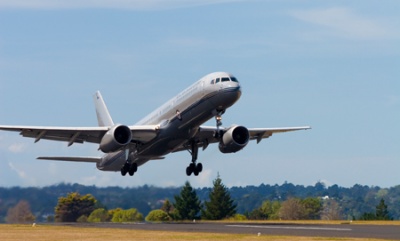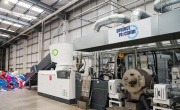Search for sustainable waste-based jet and lorry fuels gets government backing
Planes powered by waste-derived fuel could take off from British airports in the near future after the government announced it would be offering funding for projects to develop low carbon waste-based fuels for planes and lorries.
 The £22-million funding, which will be matched by industry, represents a signal of intent from a government that has already indicated its desire to revolutionise the motor industry with ultra-low emission electric cars, necessitated by the government’s target of reducing greenhouse gas emissions (to which transport emissions are a great contributor) by 80 per cent by 2050.
The £22-million funding, which will be matched by industry, represents a signal of intent from a government that has already indicated its desire to revolutionise the motor industry with ultra-low emission electric cars, necessitated by the government’s target of reducing greenhouse gas emissions (to which transport emissions are a great contributor) by 80 per cent by 2050.
The Department for Transport funding will be awarded through the ‘Future fuels for flight and freight’ competition, part of the government’s ‘Modern industrial strategy’ to support evolving industries to support economic growth, and could potentially deliver up to five new low carbon fuel plants by 2021.
It is not viable to switch over to electric power for planes and lorries due to their large weight and so a switch to biofuels is seen as the way forward, with such fuels having the potential to use 90 per cent less carbon than traditional fuels.
Trials of sustainable jet fuel made from waste materials have already been undertaken in Europe and North America, with US-based company Lanzatech – a partner of Virgin Atlantic – creating a jet fuel from waste industrial gases from steel mills, estimated to be up to 65 per cent cleaner than conventional jet fuel. Other fuels have been created from municipal solid waste, waste plastics or tyres through pyrolysis, hydrothermal liquefaction or gasification.
These sustainable waste-derived fuels have a very similar chemical make-up to conventional jet fuels, meaning they can be used in existing aircraft engines without the need for significant engine modifications.
70 groups have already expressed interest in competing for the funding in order to be able to conduct pioneering research in a sector that could be worth up to £600 million a year to the economy by 2030 and could create around 9,800 new jobs.
Commenting on the announcement, Transport Minister Jesse Norman said: “We are committed to cutting carbon emissions and promoting new environmentally-friendly fuels that will help us meet that goal.
“We are making funding available to innovative businesses which will lead the way in developing alternative fuels that are efficient, sustainable and clean.
“We want every new car and van in the UK to be zero emission by 2040, but we know lorries and aeroplanes will rely on more traditional fuels for years to come so we must promote environmentally friendly alternatives.”
A feasibility study for the ‘Future fuels for flight and freight’ competition can be read and downloaded on the Department for Transport's website. 






